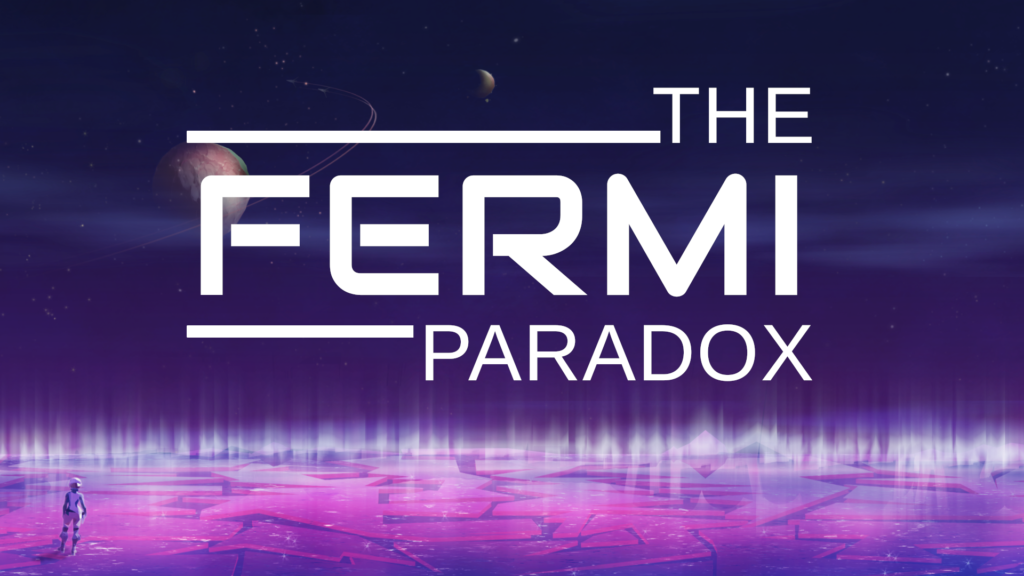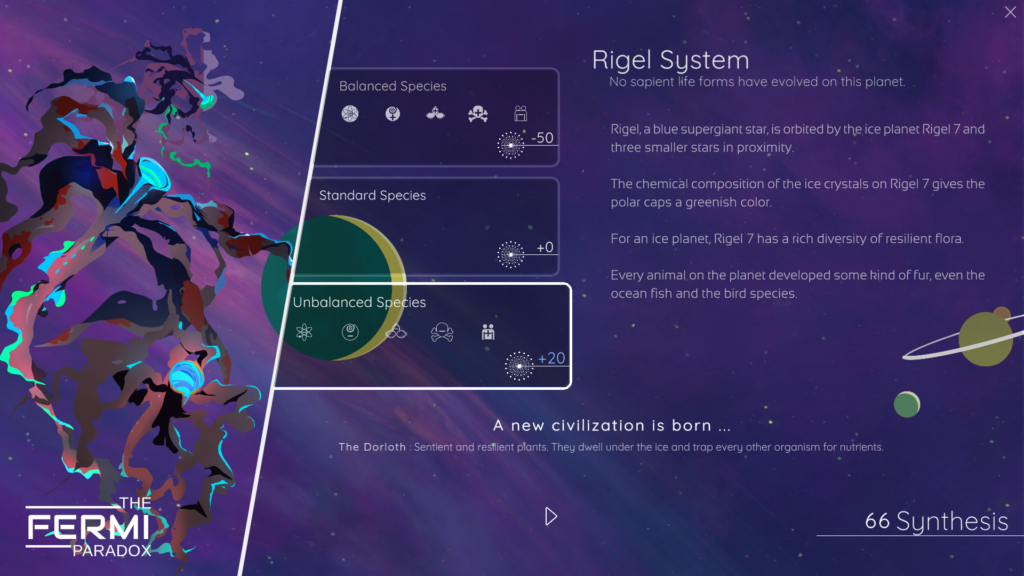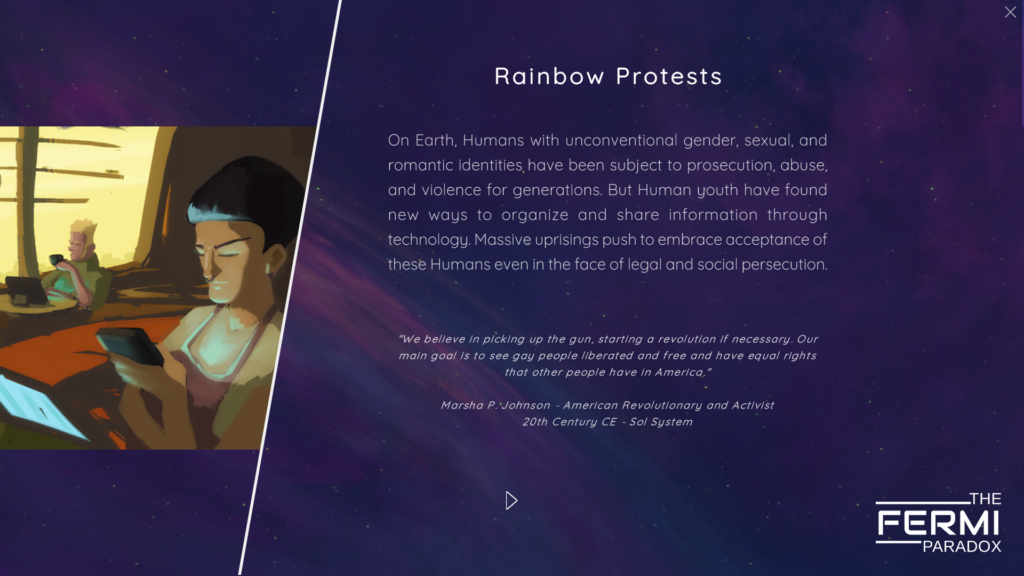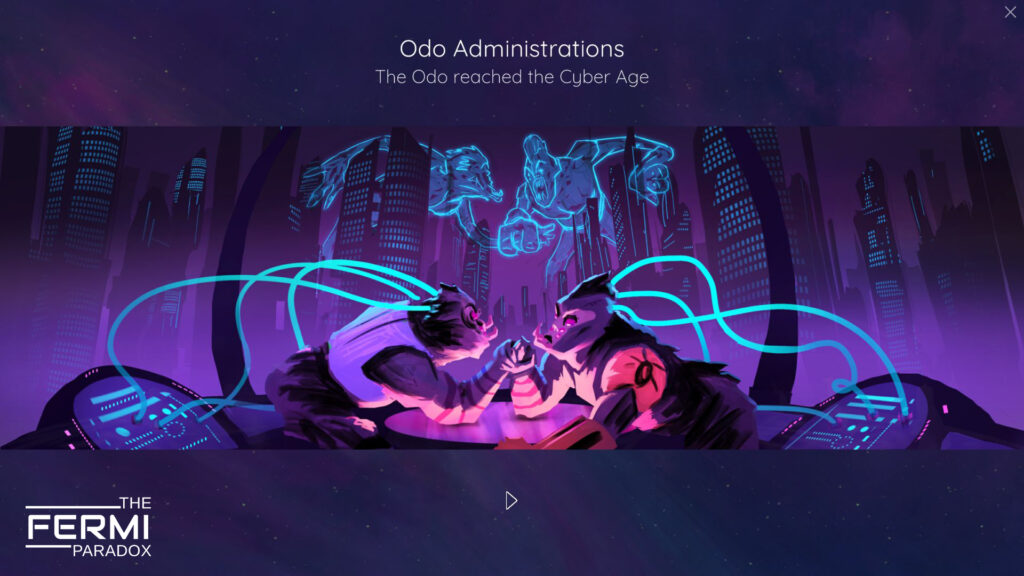
The Fermi Paradox puts galactic history in your hands
If there’s one thing that you should take away from this The Fermi Paradox preview, a game about shepherding and nurturing – or destroying – galactic civilisations and seeing what the outcome is of all your choices, is it’s all sorts of brilliant.
That might be a bit on the nose for an opening line, but there’s a lot to love when it comes to a game where your main goal is wholly unique to you as a player. The role of the galaxy’s gardener is what each player will step into the shoes of, and the tools are most certainly the same, but as you sit back and look out at the shrubbery of planets in front of you, your goal on what to make of them differs with each and every playthrough. It’s what makes the first few steps of this game feel so special.
It can feel overwhelming at first, Anomaly Games has made sure that even if you’re completely dumbfounded on what to do, the narrative experience of nurturing different cultures into decades of peace, or centuries of war, is not lost on you. If anything, it feels like a unique, fulfilling experience.
You start each game by looking at a galaxy map. With this map, you’re able to see 10 different planets, as well as what looks like a collection of thin, flowers that dot around the black depths of space. With there being nothing else to do, you snip away at these petals to uncover more about the universe, and as such, learn new things about either the planet, or the space around it. Eventually, life springs to…well, life.

And there is a lot of life to be had! During my time with The Fermi Paradox, I started two different playthroughs due to the game not having a save game system implemented – that is no longer the case, do not be afraid to save! – and each time I took a different approach with a different race. You’ll quite quickly get 4 different instances of new life, though I’ve yet to play all of the races on offer. The ones I did decide on was Humans, you know, those weird, gangly-looking things that seem oh so important? Yeah, those things. And, because I’m super creative, I decided to let these humans start their life on Sol, aka Earth.
Outside of general familiarity with humans, there were other, gameplay-based benefits, too. You see, with each new life that you decide to help grow, you get a look at the pros and cons. Which on one hand is ehhhh, because being a gardener is one thing, but it starts to feel a little weird to define races based on their aggression and intelligence, but on the other hand is ultimately what makes this game tick because there’s only so many Synthesis points you can spend before you run out.
Synthesis points are the petal-like flowers that you collect throughout the game, and the more you collect the more you have to spend. Your choices can also give you a boatload of Synthesis, or they can cost you. For my first playthrough, Humans were seen as the ‘standard’ species and so cost 0 Synthesis, leaving me with my original 70 Synthesis. Dinosaurs on the other hand was seen as the ‘unbalanced’ species to start with, so that would give me +30, whereas the ‘balanced’ species of Dolphins would cost me -30 Synthesis.
Regardless, there are benefits of picking either species, some will be harder to cultivate in your galactic garden than others which I found out quite early on when the Dorloth – resilient and sentient plants that dwell under ice and trap organisms to feed on – decided that they were going to have a war with one another immediately. Like, seriously guys, it’s been one year, what are you so upset about? It escalated so fast that, despite my constant spending of Synthesis to get them to calm down, I ended up having to make choices that nearly wiped them all out. In that way, The Fermi Paradox can be unforgiving. But much like a stubborn plant that you were certain was going to wilt away, my love and attention for The Dorloth ultimately led to the race flourishing into a beautiful, if a little war-hungry, civilization that reached The Cyber Age.
The Dorloth and the Humans were not on their own, however. They were also joined by a pig-like species called The Kularian, who were more violent than the Dorloth. One of the best things about having multiple species to help grow is that you can form their society bit-by-bit and, depending on your previous choices, it’ll affect 1) how the narrative unfolds for that species and 2) the Synthesis point system. If you hardwire the Dorloth to be a more loving, utopian sort of species that loves one another and likes to learn, then it’s going to cost you to force them to go to war. This goes for all the species, too.

After much curating to make sure you’ve got enough resources – whether it be food or, ironically, oil – the species you choose will eventually advance enough that you’ll reach an age where space travel is possible. It’s here where things get really exciting, as space travel allows the possibility of other races getting to know one another through radio signals. Some will go out to find out more, others will want to beat the ever-loving crap out of this extraterrestrial menace, and others don’t give one single damn about some flower-like race and their stupid jazz music. Again, this is all dependent on what sort of society you’ve created.
For those who go out into space though, there’s going to be different cultural aspects than there would be if you’re living on a planet. Ship life is not for everyone, and there are ships where the majority of its inhabitants will be in cryogenic sleep and is led by a skeleton crew, and other ships where life is arduous, full of strife and hierarchies that can eventually lead into cults. Sometimes, despite all the hardship and the years its taken to get to a destination, your crew might be met with hostilities that could lead to total destruction.
Because you’re creating a society and culture for four species on different planets, you’ll be faced with issues that come with difficult decisions. Or if not difficult, they’ll put strain on your Synthesis resources. One issue that I faced with the Humans was that there was an incredible amount of injustice happening against LGBTQ+ individuals, but the youth of the species were using technological advances to fight back against this injustice. The three decisions I was given at that point was for success and acceptance of the LGBTQ+ community, a ‘balance’ of acceptance but some persecution still happening, and complete injustice, with the LGBTQ+ community doing their best to battle against groups that wanted them gone. Naturally, I picked the first option, and at the time it felt like it didn’t have too much of an affect, but that wasn’t true. By the time human colonists have moved on to another planet, their ancestor’s teachings have passed on down to them, and that includes their acceptance. You can, of course, lead these colonists onto a different path – they may not even call themselves humans anymore, depending on your choices, but that’s just history for you. And personally? I find it a fascinating feature.

My only complaint is that, despite The Fermi Paradox near urging you to make the other races interact with one another, that interaction feels very impersonal. From my own experience, I never got to the stage where the Humans and the Dorloth interacted in a way outside of acknowledgement of their existence. Sure, you can share resources, but what about an intergalactic community where they could live side-by-side on each other’s planets? Where are my intergalactic, interspecies weddings and children? Granted, the game is early access and this could certainly be a thing that Anomaly Games has planned, but it felt pretty lacking in that area, overall.
With all my time with The Fermi Paradox, one thing that becomes apparent is that it is a game that’s, unfortunately, uncomfortable by nature. As I mentioned before, it feels wrong to have to sit down and decide which species is the best fit to succeed or worth sacrificing, especially as you don’t just get one species to cultivate in whatever direction you want. Why should the Humans benefit over the Dorloth, just because one feels familiar and the other is distinctly alien? It was this question that made me uneasy but eventually led to a solution: to take off God’s robes and instead commit to being the gardener. God is such a weighted term, and the definition gets twisted to fit one’s own ideology at times. As a gardener, the answer is simple: cultivate all life equally and make it strong and happy.
I think, with that idea rooted firmly in my mind and with the enjoyment I’ve experienced so far, The Fermi Paradox is going to give me quite the green thumb.
The Fermi Paradox can now be purchased (Early Access only) over on Steam.





